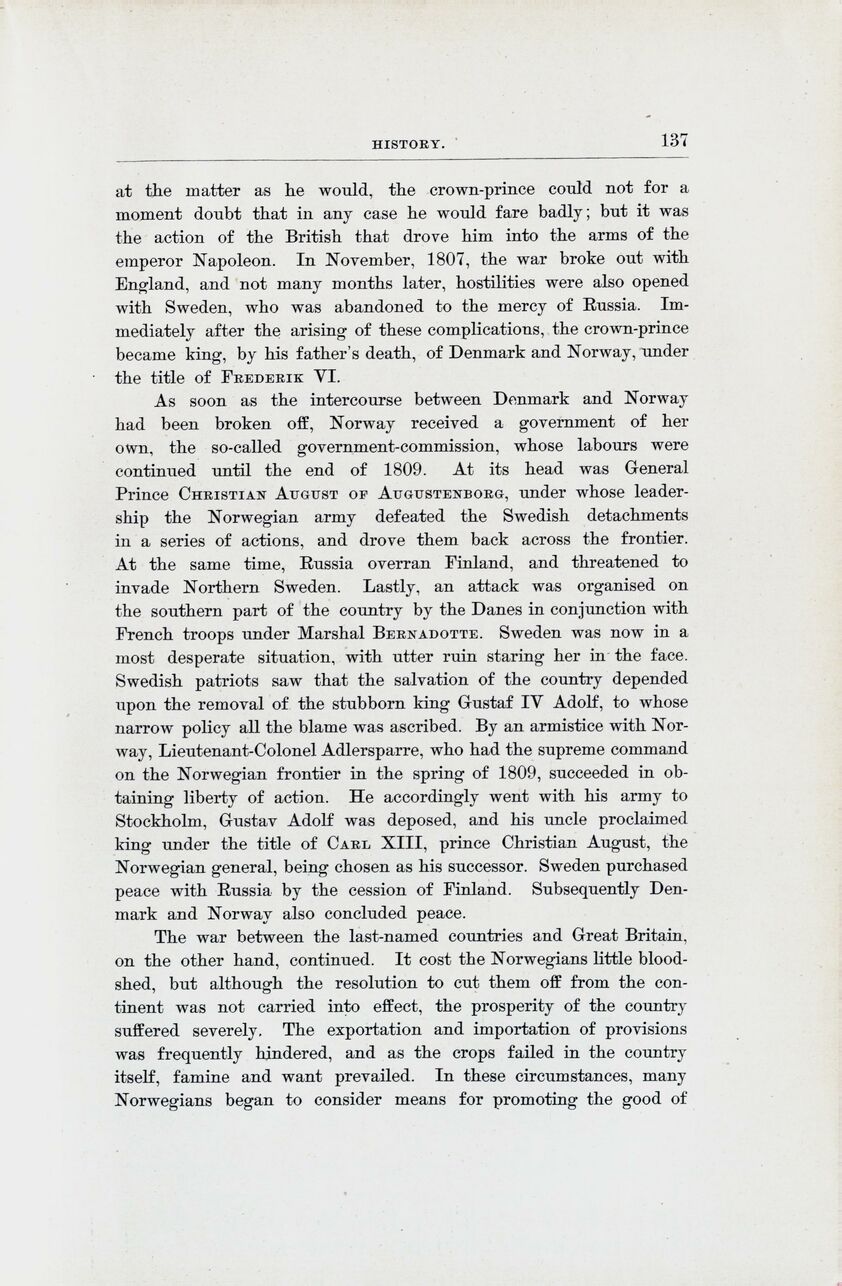
Full resolution (JPEG) - On this page / på denna sida - History, by O. A. Œverland

<< prev. page << föreg. sida << >> nästa sida >> next page >>
Below is the raw OCR text
from the above scanned image.
Do you see an error? Proofread the page now!
Här nedan syns maskintolkade texten från faksimilbilden ovan.
Ser du något fel? Korrekturläs sidan nu!
This page has been proofread at least once.
(diff)
(history)
Denna sida har korrekturlästs minst en gång.
(skillnad)
(historik)
at the matter as he would, the crown-prince could not for a
moment doubt that in any case he would fare badly; but it was
the action of the British that drove him into the arms of the
emperor Napoleon. In November, 1807, the war broke out with
England, and not many months later, hostilities were also opened
with Sweden, who was abandoned to the mercy of Russia.
Immediately after the arising of these complications, the crown-prince
became king, by his father’s death, of Denmark and Norway, under
the title of Frederik VI.
As soon as the intercourse between Denmark and Norway
had been broken off, Norway received a government of her
own, the so-called government-commission, whose labours were
continued until the end of 1809. At its head was General
Prince Christian August of Augustenborg, under whose
leadership the Norwegian army defeated the Swedish detachments
in a series of actions, and drove them back across the frontier.
At the same time, Russia overran Finland, and threatened to
invade Northern Sweden. Lastly, an attack was organised on
the southern part of the country by the Danes in conjunction with
French troops under Marshal Bernadotte. Sweden was now in a
most desperate situation, with utter ruin staring her in the face.
Swedish patriots saw that the salvation of the country depended
upon the removal of the stubborn king Gustaf IV Adolf, to whose
narrow policy all the blame was ascribed. By an armistice with
Norway, Lieutenant-Colonel Adlersparre, who had the supreme command
on the Norwegian frontier in the spring of 1800, succeeded in
obtaining liberty of action. He accordingly went with his army to
Stockholm, Gustav Adolf was deposed, and his uncle proclaimed
king under the title of Carl XIII, prince Christian August, the
Norwegian general, being chosen as his successor. Sweden purchased
peace with Russia by the cession of Finland. Subsequently
Denmark and Norway also concluded peace.
The war between the last-named countries and Great Britain,
on the other hand, continued. It cost the Norwegians little
bloodshed, but although the resolution to cut them off from the
continent was not carried into effect, the prosperity of the country
suffered severely. The exportation and importation of provisions
was frequently hindered, and as the crops failed in the country
itself, famine and want prevailed. In these circumstances, many
Norwegians began to consider means for promoting the good of
<< prev. page << föreg. sida << >> nästa sida >> next page >>